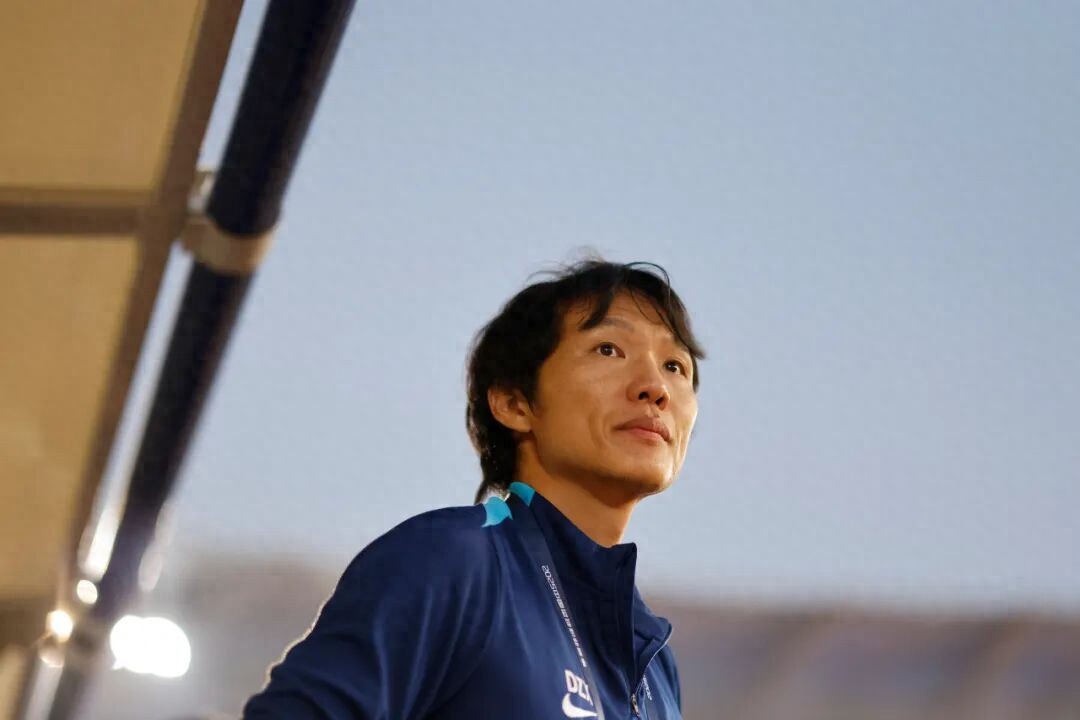
Reporter Lu Mi reports Before stepping in as the interim head coach of Wuhan Three Towns, most fans recalled two highlights of Deng Zhuoxiang’s career. One was when he gestured to then-national team coach Gao Hongbo to let him take a free kick before making a substitution, then scored a decisive goal to help China beat France 1-0, breaking through goalkeeper Lloris’ defense. The other was during the same year’s East Asian Cup, where Deng and his teammates executed a series of exquisite plays, culminating in him scoring the third goal against South Korea with his left foot. After that match, media declared the 32-year “Korea fear” finally ended.
More than a decade later, when Deng Zhuoxiang took charge at Wuhan Three Towns, there were only three days left before the sixth round match against Yunnan Yukun. Within just 20 hours after being announced as the team’s interim head coach, Deng’s mind was instantly filled with all matters concerning the team. Although he felt quite overwhelmed inside, he appeared very composed. Starting with a 3-1 victory over Yukun, he opened his coaching career on a high note, followed by draws against Guoan and Dalian, and consecutive comebacks against Tianjin and Henan. After an eight-game winless streak, he managed a clever substitution to beat Shanghai Shenhua. Whenever facing adversity, Deng always found ways to turn things around. He describes football as “effort plus a bit of luck,” and openly pursues what he believes in with determination.
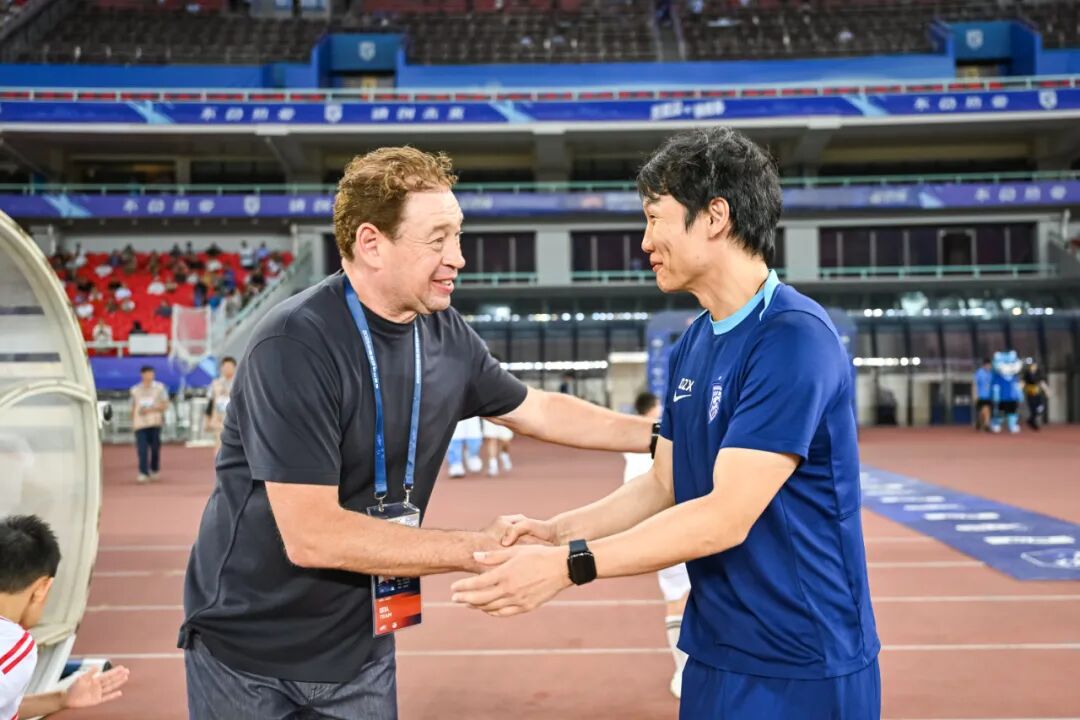

◆Football Magazine: During this break, which areas did the team focus on improving?
Deng Zhuoxiang: At this stage of the season, everyone’s nerves have become quite tense. From the start of the season until now, with the dense schedule and frequent away games, combined with the team’s earlier poor results, the players have accumulated a lot of physical fatigue and mental pressure. This “over-tension” greatly affects the team’s performance. So first, we needed to let everyone truly relax during the break. Another focus was defense. The break gave us time to settle down and address defensive issues through targeted training, aiming for improvement in the next phase.
◆After retiring and transitioning to coaching, did you ever imagine you would take the lead like this? Did you expect to step in as an interim coach to save the team?
Honestly, not only was it surprising to you, but I was also taken aback when I got the news. At first, I didn’t dare to think I’d take on such responsibility so soon, since I hadn’t coached long and was still learning many things. I was actually uncertain inside. But the team’s situation was critical, already in the relegation zone, so someone had to step up. Even though I lacked confidence, I had to accept this trust. Looking back, responsibility outweighed hesitation. After taking the role, I told myself to learn while doing and not let the team down.
◆Were you mentally prepared at that time?
There was hardly any time to prepare. From the club notifying me to take over to leading training the next day, it was barely 20 hours. I was extremely anxious, couldn’t sleep at night, and my mind was full of questions: organizing the entire training plan, planning tactics for the match – all had to be figured out from scratch. The players were also in poor condition, emotionally low after consecutive losses, and had to readjust their daily routines. Previously they followed the head coach’s instructions; now I had to communicate directly with the club, hold coaching meetings, and speak with players individually. With so many tasks piled up, I felt overwhelmed and didn’t know where to start.
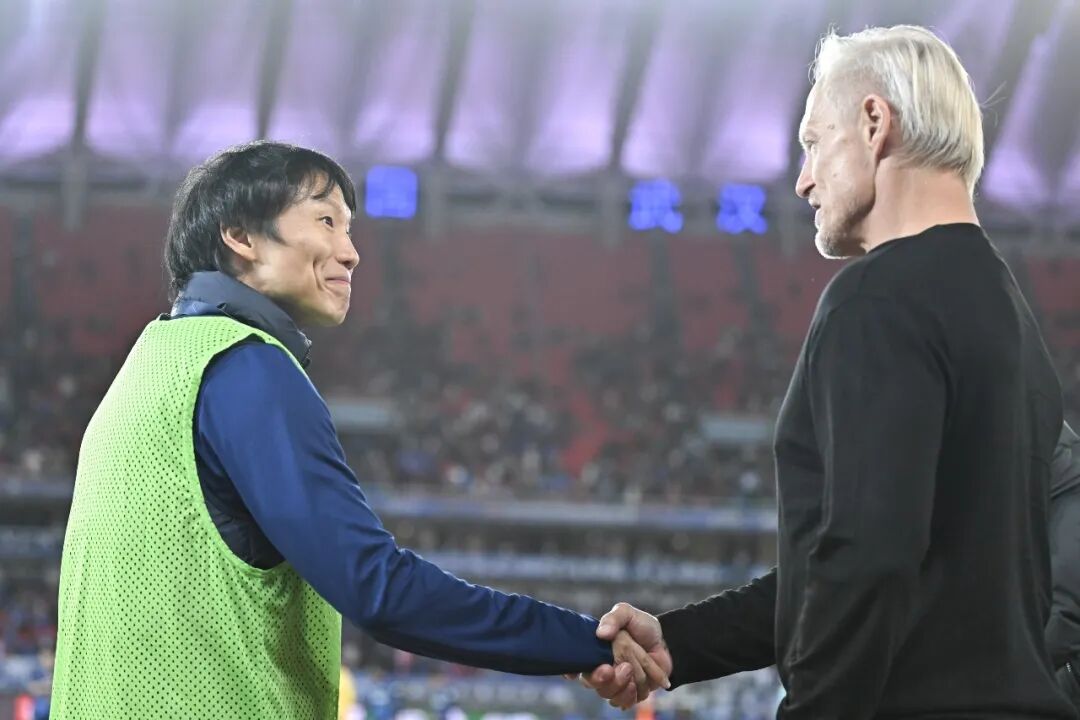
◆In the first five rounds, the team earned only 1 point and scored just 2 goals. What was the most difficult problem when you took over?
The biggest challenge was the loss of confidence. Whether during my playing days or as an assistant coach, I noticed that whenever a team goes on a losing streak, players inevitably develop doubts—either self-doubt or mistrust among teammates. While this is common in prolonged winless periods, its impact is severe. Players carry a heavy mental burden and may hold back in matches for fear of mistakes. Many players actually have good ability and perform well in training, but on the field, due to lack of confidence and tension, they can’t show their true level. So I felt the first step was to help players overcome these mental blocks.
◆In the matches against Meizhou and Yunnan, the scorelines reversed dramatically. What caused such a contrast between process and result?
It was essentially that everyone worked together to shed the burden in the days before. After losing to Meizhou, the players’ mood was even lower. I talked to each player individually to understand their feelings. Meanwhile, provincial and city leaders visited the team to hold meetings and relieve pressure. This top-down support made players feel they weren’t carrying the weight alone, easing their mental stress. By the Yunnan match, the team showed the spirit of former champions, and winning felt like a natural rebound from rock bottom.
◆Since you took charge, the efficiency of foreign forwards upfront has clearly improved, and domestic players’ form has also risen. What methods did you use?
There was no particularly complicated method. The key was to make sure everyone clearly understood their roles and could showcase their strengths in the right positions. I made detailed adjustments in training: clarifying each position’s responsibilities and fine-tuning formations based on player traits. For domestic players, for example, some fullbacks have strong assist abilities, so we practiced who covers for them and when. Through these small tweaks, each player could perform in a familiar and suitable environment. This naturally boosted the foreign players’ efficiency and helped domestic players find their roles, making the whole team function more smoothly.
◆As the team emerged from difficulties, your position as head coach became more secure. When did you feel truly recognized by the players or the outside world as a coach?
I never really thought about “being recognized” or paid much attention to outside opinions. What matters more to me is seeing the team improve, whether players show what we train in matches and practices — that’s what I focus on. Recognition isn’t a single moment but accumulates over time. Fighting alongside players in matches, reviewing losses together, celebrating wins together — this shared journey is more real than any instant. Honestly, the credit for the team’s turnaround belongs mainly to the players. I’m still young as a coach. The Chinese Super League has many excellent foreign and domestic coaches, and I keep learning from their strengths.
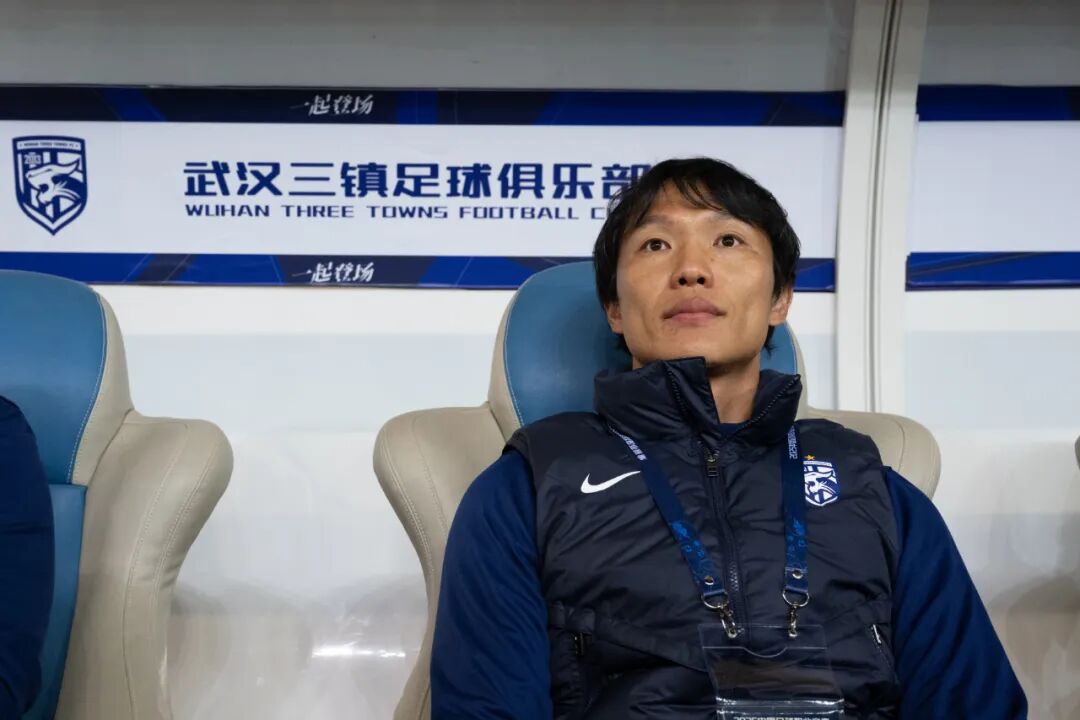

◆Football Magazine: Winning your first match in charge, what did it mean for the team and for you personally?
Deng Zhuoxiang: For me, it was not only proof that I could handle the responsibility, but also sent a positive message to the team, giving them hope. As long as we fight hard, we can compete with any opponent. Many outside thought Three Towns were definitely relegated this year, but after that win, our negative emotions eased, and the public saw a different side of us.
◆Starting with the first cycle match against Guoan, the outside world truly sensed a different Three Towns under your leadership. Was the result of that match surprising to you?
It was completely unexpected. Guoan has the highest possession rate in the league; their front-line coordination, individual breakthroughs, and chance creation are far superior to ours. For more than 80 minutes, we were under heavy pressure, trailing 1-4. But after 80 minutes, their stamina dropped, so we decided to fight hard for the last ten minutes, even if just to score once. Leading by a big margin with little time left, they seemed to relax a bit, but we never gave up, repeatedly seizing counterattack opportunities to level the score at 4-4. When the final whistle blew, I was quite emotional, but after calming down, I thought the draw was partly luck, but also due to our refusal to give up.
◆In the match against Tianjin Tigers, you scored right after substitutions. Was that a coincidence? How did the players perform when trailing?
The Tianjin Tigers match came after the Guoan game. Although the draw with Guoan involved some luck, it injected great confidence into the team. That result showed everyone that only by not giving up can we change outcomes. Afterwards, we made comebacks against Tianjin and Henan. The belief that “not giving up leads to success” gradually took root in everyone’s heart. Even when behind, players kept running, fighting, and never gave up any attacking chance. Whether it’s a comeback or a miracle, it favors those who work hard for it.
◆In subsequent matches, you had two comebacks. When conceding early goals, results seemed positive. How did you improve the defense?
Conceding early goals was an old problem from the season’s start. In the first five rounds, we often conceded within the first five minutes, which frustrated the players. I knew it wasn’t simply a matter of “lack of focus” but more about physical readiness and slow match rhythm entry. So I requested the club to hire a more professional fitness coach. Later, the club brought in a fitness coach from Brazil who made many changes, improving warm-up routines and training details. Gradually, everyone adapted faster to matches, and the early concession issue improved significantly.
◆Your team has equalized and made consecutive comebacks. If these were accidental, they might be called miracles. How do you view these repeated occurrences?
On the bright side, people might say “this team really fights and creates miracles.” But I focus more on the underlying issues. It shows we still have many inconsistencies in matches, such as slow starts leading to passive situations, or making consecutive mistakes in certain periods, giving opponents chances. If we can fix these issues, we wouldn’t have to wait until trailing to stage comebacks; instead, we could control matches from the start, which would truly reflect our strength improvement.
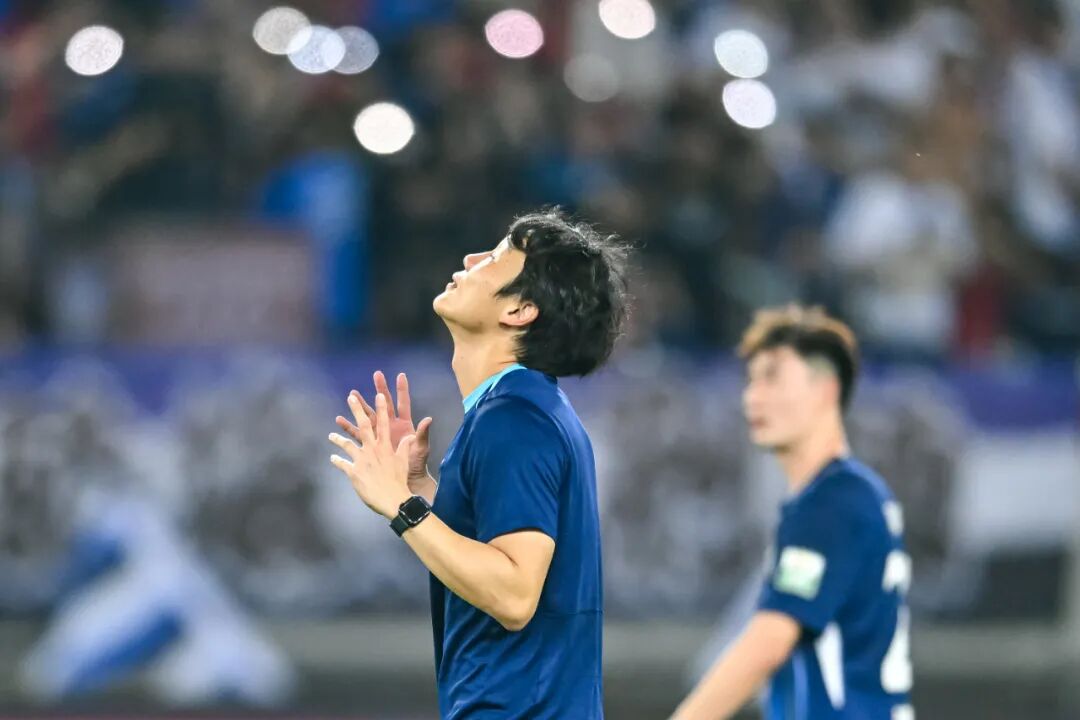

◆Football Magazine: How did you prepare for the match against Shenhua? Was Tudorie’s playing time planned in advance?
Deng Zhuoxiang: Not really. After the heavy defeat in Beijing, the team had to make changes. If we stayed in a slump too long, pressure on players would build up. So against Shenhua, we made extensive adjustments in formation and personnel, rotating four or five positions. The week’s training focused on the new formation, with an emphasis on strengthening defense and clarifying tactical demands. When the team’s results were relatively stable before, some players felt somewhat complacent; this adjustment aimed to break that state.
◆Was that goal a coincidence or inevitable?
Every goal has elements of chance and inevitability. The chance aspect relates to the timing; if it had come earlier in the first half, Shenhua would have had ample time to adjust, making the final result uncertain. The inevitability is the team’s hard work. We indeed exploited spaces behind Shenhua’s defense, which is the charm of football. Haoqian performed excellently, creating many chances, including one or two clear scoring opportunities. He generally plays better as a forward than as a winger, but since the foreign player was the striker, Haoqian’s time upfront was limited. I hadn’t planned to substitute him early, but due to his fitness issues, Tudorie came on at that moment.
◆Coming back from dire situations repeatedly, what aspects of football’s charm have you experienced?
First, football is a team sport. Whether coaching staff, players, staff, or fans, everyone is an indispensable part of the team. I believe match outcomes aren’t decided by any single individual’s effort but by collective hard work in daily training, which leads to victories. Also, football is full of unpredictability and sometimes requires a bit of luck. This combination of “effort plus a bit of luck” is what makes football so captivating.
◆Do you enjoy this process?
Absolutely! If we knew every match result beforehand, winning wouldn’t feel so joyful. Because of its unpredictability, with “equalizers” and “comebacks,” the happiness of winning after fighting hard is more genuine and precious. This journey not only holds unpredictable beauty but also showcases each player’s highlights. Seeing players grow from lacking confidence to fighting bravely, from conceding early goals to gradually controlling the tempo, this growth gives me more satisfaction than just winning. Although there are anxieties and pressures, whenever I see the team improve and everyone striving for a common goal, I feel all efforts are worthwhile.
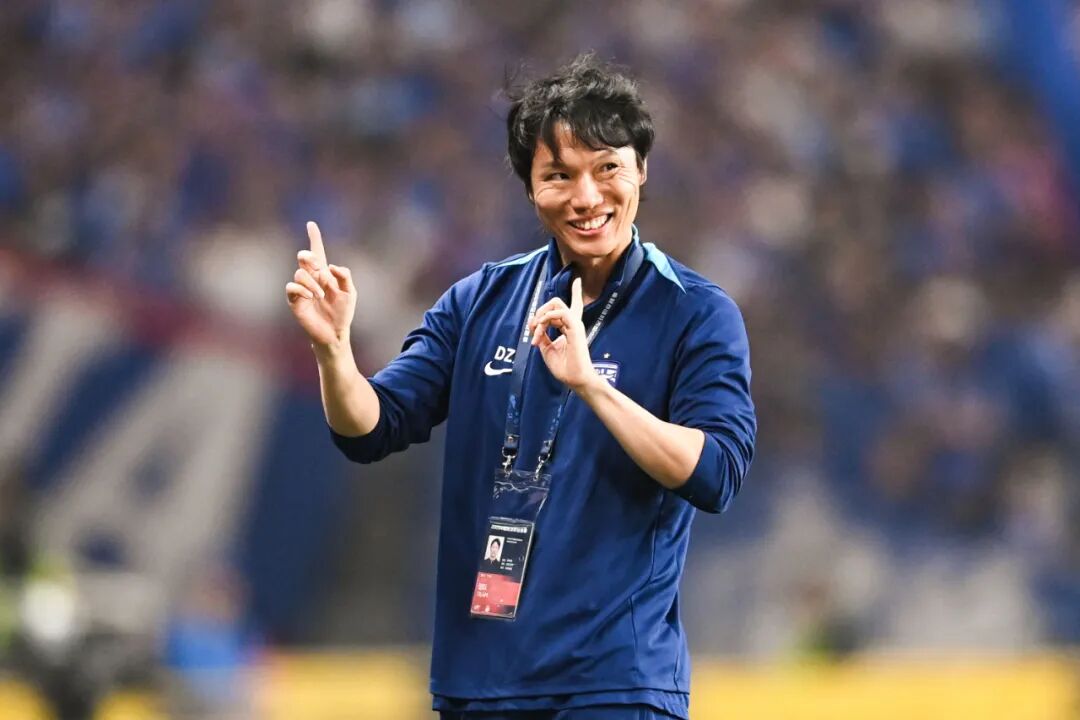

◆Football Magazine: The team recently went through an eight-game winless streak. What caused this?
Deng Zhuoxiang: Outsiders might think we had negative emotions during those eight matches, but after reviewing each game, the coaching staff found the core issue was handling opponents’ strategies. Opponents began focusing more on us, with some teams choosing to defend deep. In such cases, we had more possession but left larger spaces behind. For example, in matches against Zhejiang, Changchun, and Meizhou, we were trapped by their dense defenses. It’s not that the team didn’t improve, but we lacked enough solutions for these scenarios. Transitioning from counterattack to possession style and adapting player traits to tactical cohesion takes time, and this process isn’t smooth, which explains the eight-match winless run.
◆You mentioned Three Towns was a fragile team during that period. What does “fragile” refer to?
This team won four championships in three years, briefly reached the AFC Champions League, but in recent years faced various issues: transfer bans, player turnover, coaching changes, and even fan loss. These challenges are difficult and even risky for the club and team, so reaching this point is very hard. I describe the team as “fragile” because it lacks a long historical foundation, so everyone must work harder to protect it.
Whether as a player or now as a coach, I deeply appreciate the fans’ support for the club and team through these ups and downs. They’ve endured a lot and continuously encouraged us. We can feel this support. Sometimes after matches, I might express myself too bluntly due to excitement, but what I want to convey is gratitude and hope more fans will support our team.
◆Must every club and team go through trials before maturing?
Worldwide, whether giants or underdogs, all go through growing pains and low points. It takes time to build a foundation. Even century-old clubs abroad don’t win championships or compete for titles every year. Does that mean they don’t exist? Often, we need to take a long-term view.
I experienced the dissolution of Optics Valley and have seen many clubs fold recently. When a top-tier league team in a region disbands, it heavily harms local football development. Many young players just entering youth systems and starting to plan their futures suddenly lose their teams. They might have become professional players or national team members, but the club’s collapse completely changes their career paths. So now, we must focus on the club’s and team’s sustainable development and protect them carefully; otherwise, the consequences are severe.
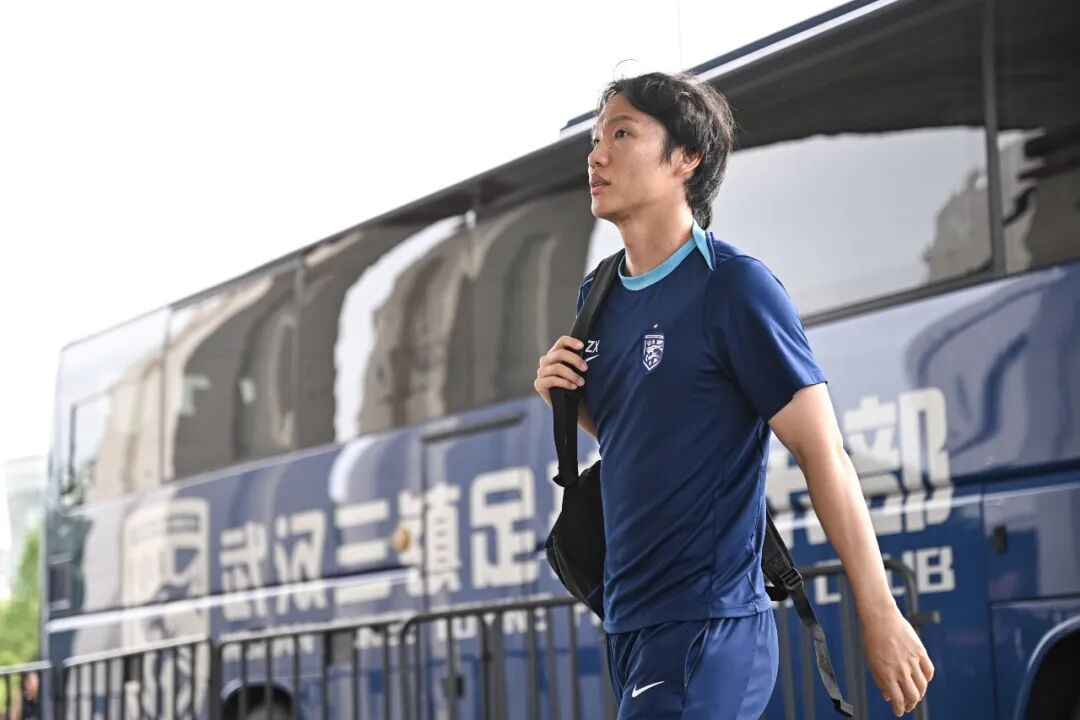

◆Football Magazine: You were an outstanding player in your career, both for clubs and the national team. Do you hope your players become like you?
Deng Zhuoxiang: I don’t want anyone to become me; I want them to become themselves. Football needs individuality. Although it’s a team sport, without personality, you can’t show the desire to win.
◆Are you considered a coach with personality?
I suppose so. I’m somewhat stubborn inside and stick to what I believe. That’s just who I am. Maybe I adjust a bit according to the environment, but I never completely abandon my character.
◆You’ve experienced many ups and downs with Three Towns, yet your expression never changes. Why?
My professional role and past experiences have made me accustomed to staying calm. As a player, I felt that getting anxious wouldn’t change the situation on the field but would disrupt my judgment. If I calm down and think, I might find different solutions. Now as a coach, this mindset is even more important. A coach’s core work happens in training, where repeated demands form tactical habits. During matches, especially away games with many fans, shouting on the sidelines is useless because players can’t hear you. Of course, I have emotions but don’t show them on the field. Sometimes with family, I release emotions, but in front of the team and public, I have to keep composed.
◆You seem to really like the character Gin Ichimaru from the anime "Bleach."
I started reading that manga when it came to China in 2001. From the beginning, I was drawn to this complex and tense character. He joined the villains for the one he loved, enduring a long struggle. Although he ultimately failed, he constantly fought his inner desires. I think he’s the most fascinating character in the series.
◆Have you had similar experiences or feelings?
As I mentioned, I’m somewhat stubborn inside, but as a coach, I constantly build tactical approaches and then overturn them. Every day I face challenges; sometimes I suddenly spot team weaknesses and must discard previous ideas. This isn’t easy. But I can accept more advanced or better tactical methods because tactics are never fixed.
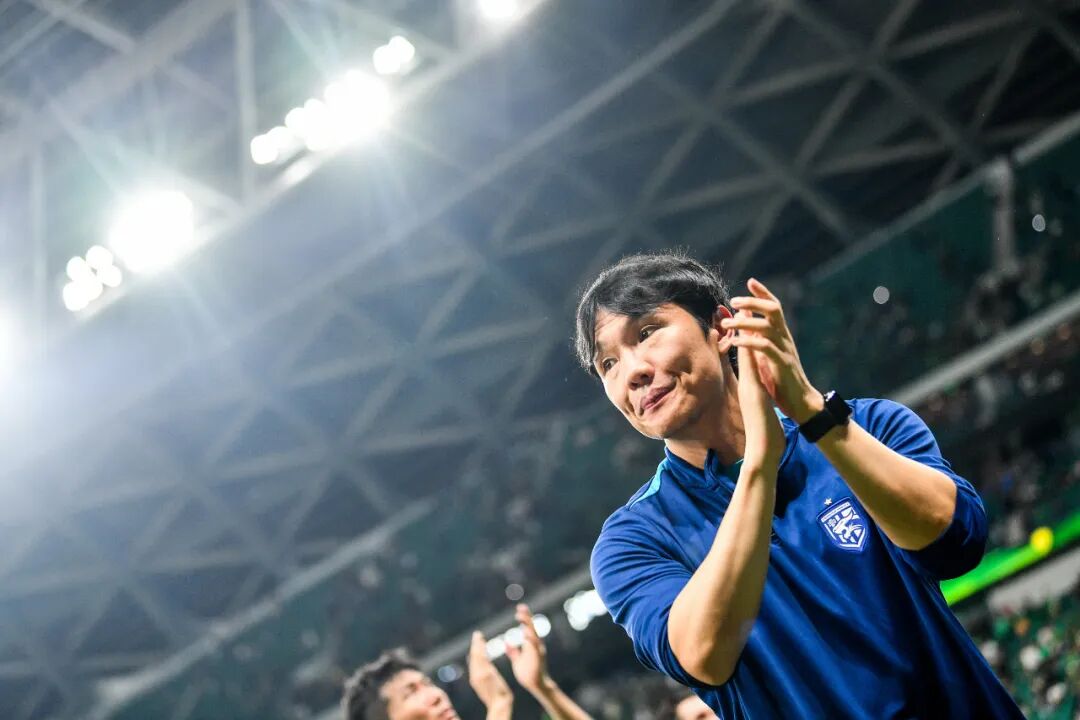
◆You’ve been coaching for nearly half a year. Do you find managing a Chinese Super League team easy?
It’s very hard. As head coach, I’m responsible not only for tactics, training, and matches but also for team atmosphere, each player’s condition, even daily travel and training schedules. My mind never stops. Sometimes when family talks to me, my thoughts are still on the team and matches. So this job isn’t just the few hours on the training ground or matchday; it almost consumes my entire life.
◆Has the club talked to you about next season?
The club wanted to discuss it before, but I said to wait until this season ends. We haven’t secured safety yet, and distractions wouldn’t help the current work. I want to stay fully focused now.
◆You seem quite laid-back. Starting your coaching career with such experiences, how do you evaluate the value it has brought you?
I wouldn’t say laid-back; I’m more introverted and prefer a steady path without too many ups and downs. That’s my preference. But sometimes this job doesn’t allow that, and I still hope for simplicity and stability.
◆What kind of coach do you ultimately want to become?
At this stage, I hope my team shows more traces of my training style and characteristics, including tactical pursuits. But sometimes reality requires compromises. If I’m too rigid about my ideas, results might suffer. I’m learning how to balance that.
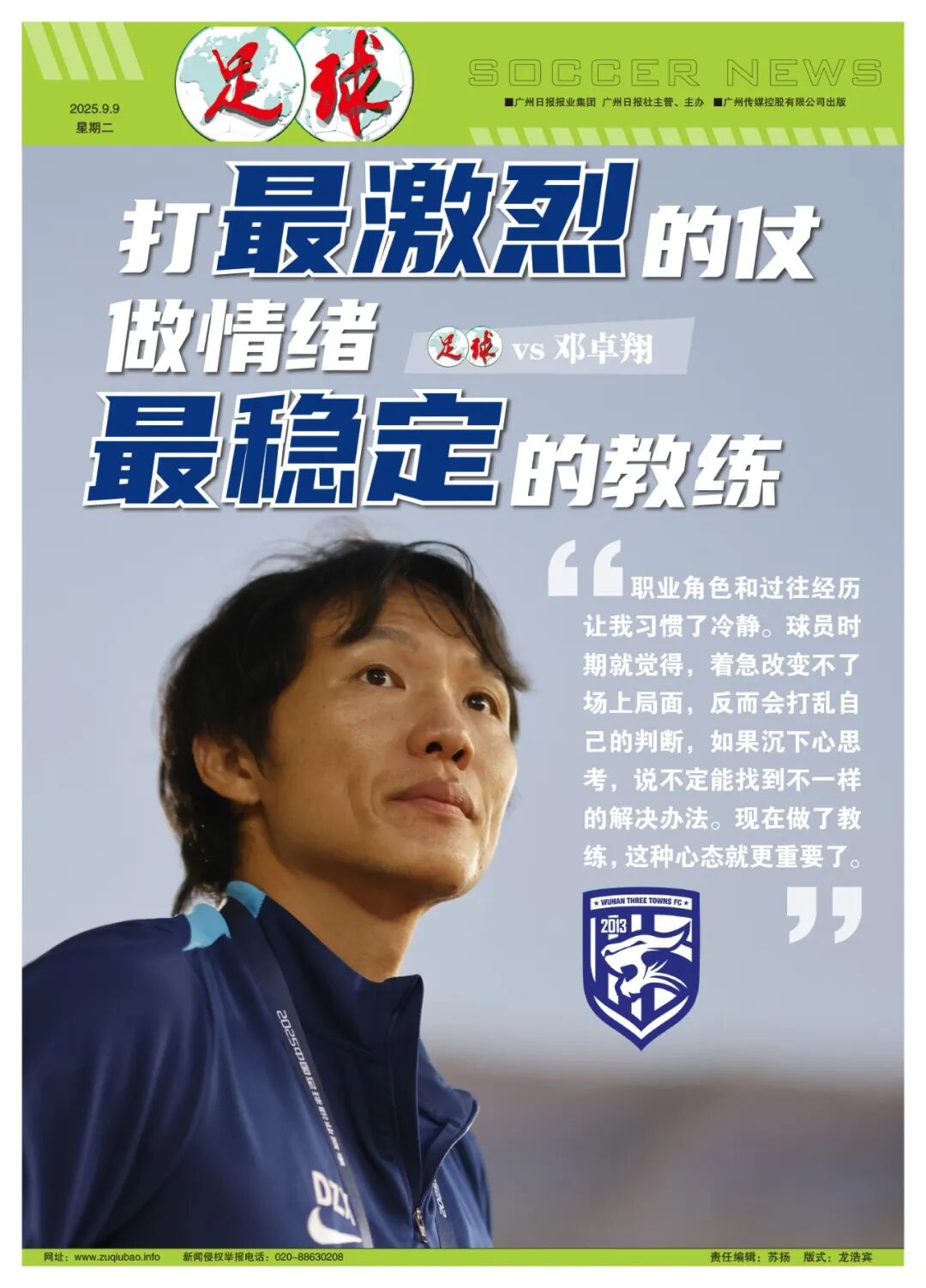





























 Links
Links
 Contact
Contact
 App
App


